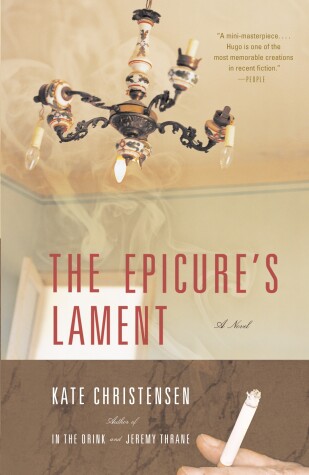
pamela
Written on Jul 1, 2020
Hugo is well-written, and a fascinatingly unreliable narrator. We only get his point of view, which is unashamedly biased, but because of that, we are also treated to self-involved monologuing, and page after page of grandiose boasting about his sexual exploits. There was a lot of repetition of ideas. Hugo spends the whole book cooking, fucking, and being generally dickish to everyone, which was fun and interesting for a while, but got a bit samey by the end.
Where the book really picked up was the 75% mark, and I found myself a little more invested in Hugo and his cast of characters. As the book culminates with a Christmas meal, in which all the characters gather, and Hugo gets to reflect on all the people who have forced themselves into his self-imposed exile, the book comes to a lovely, heartfelt, poignant, and thoroughly satisfying conclusion.
Then Christensen keeps writing.
I have no idea what the decision was behind Notebook 4, but it was utterly redundant and undid all of the excellent work and perfect prose that had come before.
For future readers of The Epicure's Lament, as soon as you see the words Notebook 4, stop reading. The additional text adds nothing to the narrative, and you'll feel a lot more satisfied with this book if you pretend it ends earlier.
